July 4, 2016, should have been the start of a fun and relaxing vacation up north for Mark and Connie Hansen of Chesterfield, Michigan.
They had arrived at Sauble Resort in Ludington, Michigan, a day earlier. The quaint resort in this Lake Michigan beach town overlooks Hamlin Lake and has been an annual destination for the family since 1979.
The forecast for the day called for sunny skies and temperatures in the mid 70s—perfect conditions for a day of fishing followed by oohs and aahs at the firework display over Lake Michigan.
‘Something’s wrong’
Their Independence Day plans changed drastically at about 8 a.m., when Connie awoke to strange breathing noises coming from Mark.
“He was breathing in a weird way,” Connie said. “I tried to wake him up, but he didn’t respond. His eyes were open, his body was stiff, his tongue was sticking out and he was making a weird sound. I thought he was having a seizure.”
But Mark was not having a seizure.
The 52-year-old had suffered a sudden cardiac arrest and the noise Connie heard was agonal breathing, a desperate gasping for air triggered when the heart stops circulating oxygenated blood.
Mark’s heart had completely stopped beating.
Unable to get him to respond, Connie ran to a nearby cottage where friends were staying.
“Something’s wrong with Mark,” she frantically told them. “You need to call 911.”
They raced back to Mark’s cottage and found him on the ground, face down. He had fallen out of the bed. He also sustained a blow to his head in the fall.
“There was blood next to him and the weird breathing noise I heard earlier was gone,” Connie recalled. “He wasn’t breathing at all.”
Two men on vacation with the Hansens—one a trained medic and police officer—immediately started CPR. They continued chest compressions until first responders and paramedics arrived.
As Connie waited outside the cottage with friends and family, they could hear the shockwaves from the automated external defibrillator, or AED.
“We heard the first shock,” Connie said. “Then we heard another shock, and another, and another.”
Paramedics delivered six shocks to Mark’s body over the course of 27 minutes.
“When we heard the shocks, we knew what that meant,” Connie said. “His heart had stopped and he was basically dead. When they took him out of the cottage on the stretcher and put him in the ambulance, he was not alive.”
‘Tears of joy’
Paramedics rushed Mark to Spectrum Health Ludington Hospital, where emergency room physician Alan Grillo, MD, took charge of the effort to bring him back to life.
“As soon as a cardiac arrest patient enters the emergency room, we start life-saving measures,” Dr. Grillo said. “When Mark got here, he had an organized rhythm, but did not have a heartbeat. We continued with high-quality CPR and gave him medication to help restart his heart.”
The Hansen family feared the worst. A nurse came into the consultation room to let them know the doctor would like to speak with them.
“I thought for sure they were going to tell us they did everything they could, that Mark didn’t make it,” Connie said.
But Dr. Grillo had a different message. The medical team had stabilized Mark and an Aero Med helicopter would take him to Spectrum Health Butterworth Hospital in Grand Rapids.
“We all had tears of joy,” Connie said. “But in the back of my head, I was still very worried. He didn’t have any vital signs for almost an hour. I was wondering what kind of brain damage he may have and if we’d be forced to make a difficult decision once we got to Grand Rapids.”
A team of specialists greeted the Hansens at Butterworth Hospital, including cardiologist Alan Woelfel, MD.
After Mark had been in the hospital two days, doctors decided they would lower his anesthesia to wake him and see how he responded.
“We didn’t know what to expect,” his wife said. “But he woke up. He looked at us, smiled, and said, ‘What’s going on? Where am I?’”
Apart from confusion, Mark found himself doing extremely well. Five days after the sudden cardiac arrest, Dr. Woelfel implanted a biventricular implantable cardioverter defibrillator.
Mark got the OK to leave the hospital the following day.
Cornhole champ turns ICU patient
Mark said he doesn’t have any recollection of the cardiac arrest.
He remembers arriving at the resort and winning the cornhole championship that first night.
“I went to sleep as a champion cornhole player and woke up two days later in the intensive care unit,” he said.
Mark works as a registered nurse in the surgery department at a hospital in Metro Detroit. He knew something wasn’t right as soon as he woke up in the hospital. He could see the arterial line and pulmonary artery catheter in his neck.
According to the American Heart Association, only 12 percent of patients who suffer a sudden cardiac arrest survive. Survival depends on immediately getting CPR.
“When performed within the first few minutes of cardiac arrest, CPR can significantly increase a person’s chance of survival,” Dr. Grillo said. “Mark was fortunate to be staying with people at the resort who were trained in CPR. Their quick actions are what saved his life and prevented any permanent brain damage. Without them, Mark never would’ve made it to the ER.”
A person’s chance of survival increases to 46 percent if CPR is performed immediately following cardiac arrest. For every minute that goes by that CPR is not performed, the chance of survival decreases 10 percent.
Celebrating life—and saviors
One year after his near-death experience, Mark and his family returned to Ludington to celebrate his life—and to honor those who rushed to his aid.
“We were in the best possible place for this to happen,” Connie said. “From having friends and family … who were trained in CPR to the care and compassion given to us at Ludington Hospital, we feel that if Mark had a cardiac arrest anywhere else, it could’ve been a very different and dismal outcome.”
For Mark, he’s eternally grateful to the clinicians who gave up their holiday to help save his life.
“It’s Fourth of July morning, and for these people to be able to pull this miracle of life out of a hat shows incredible skill,” he said. “It doesn’t matter if it’s a big, metropolitan hospital or a small-town hospital like Ludington. It’s all about the character of the people who are working on you.
“They’ve helped me appreciate that life is a gift and to take advantage of it.”
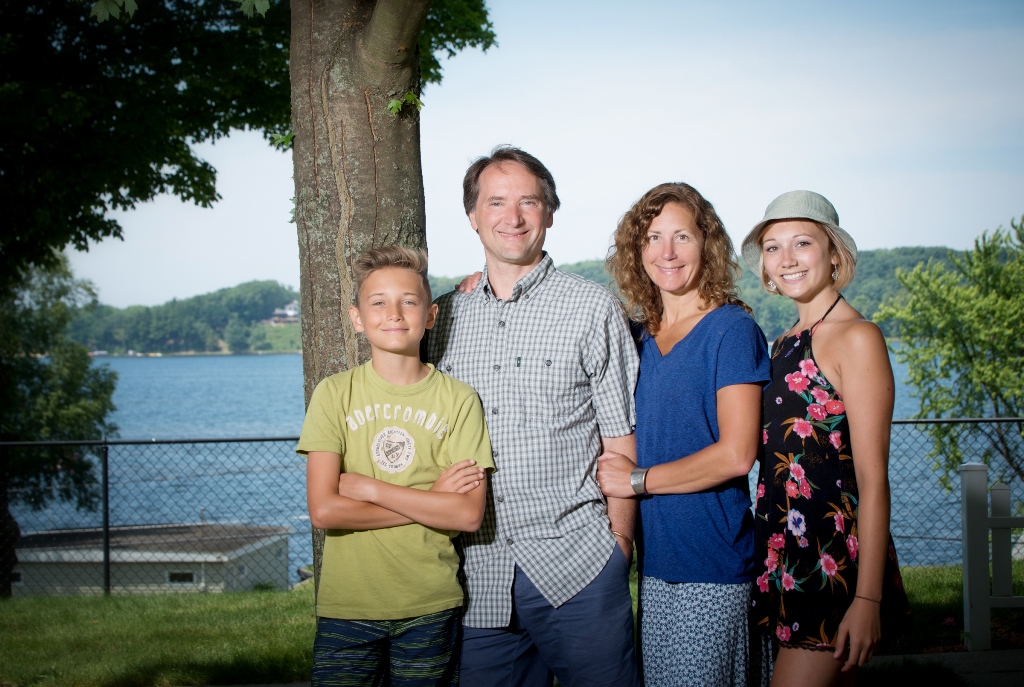

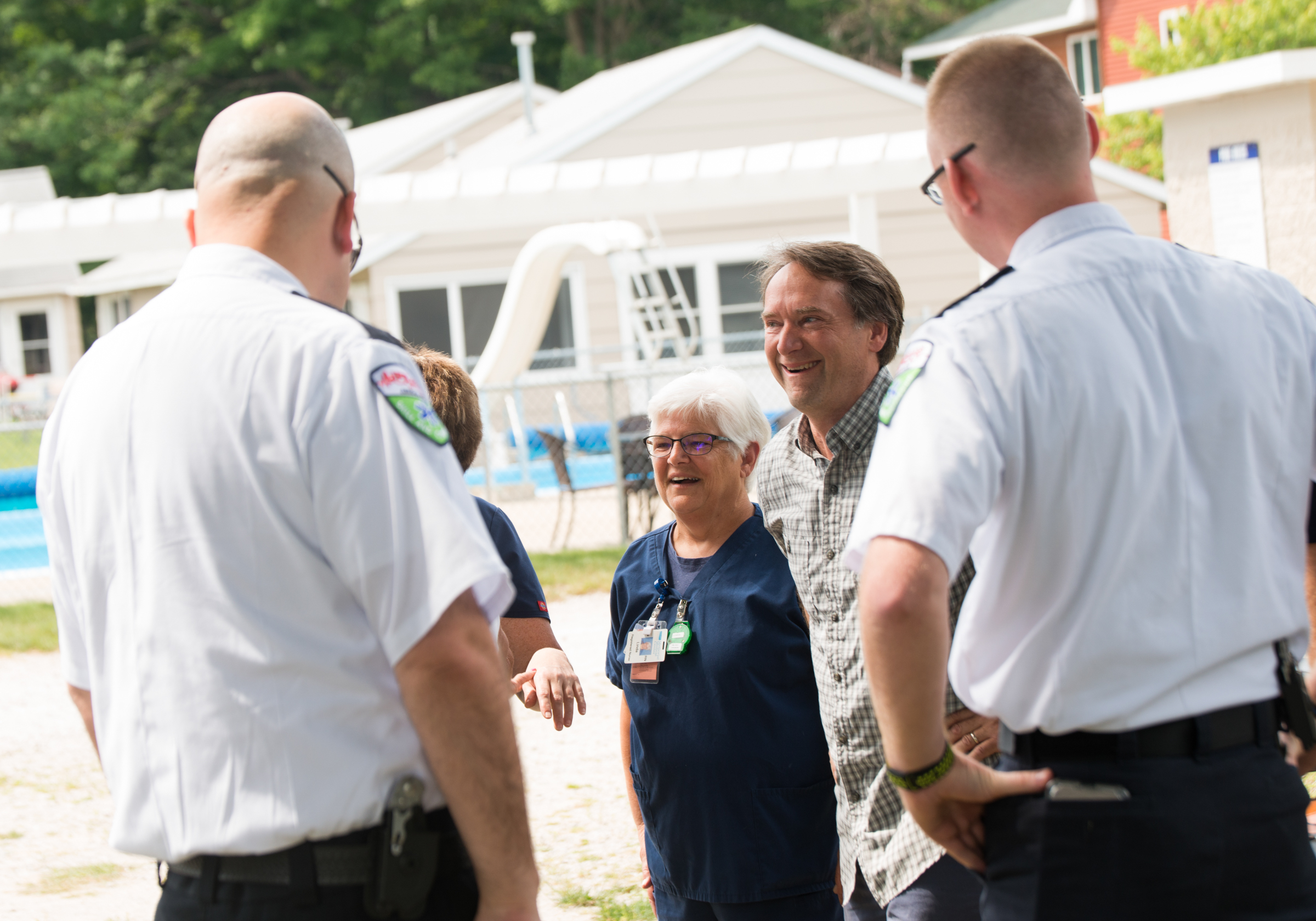
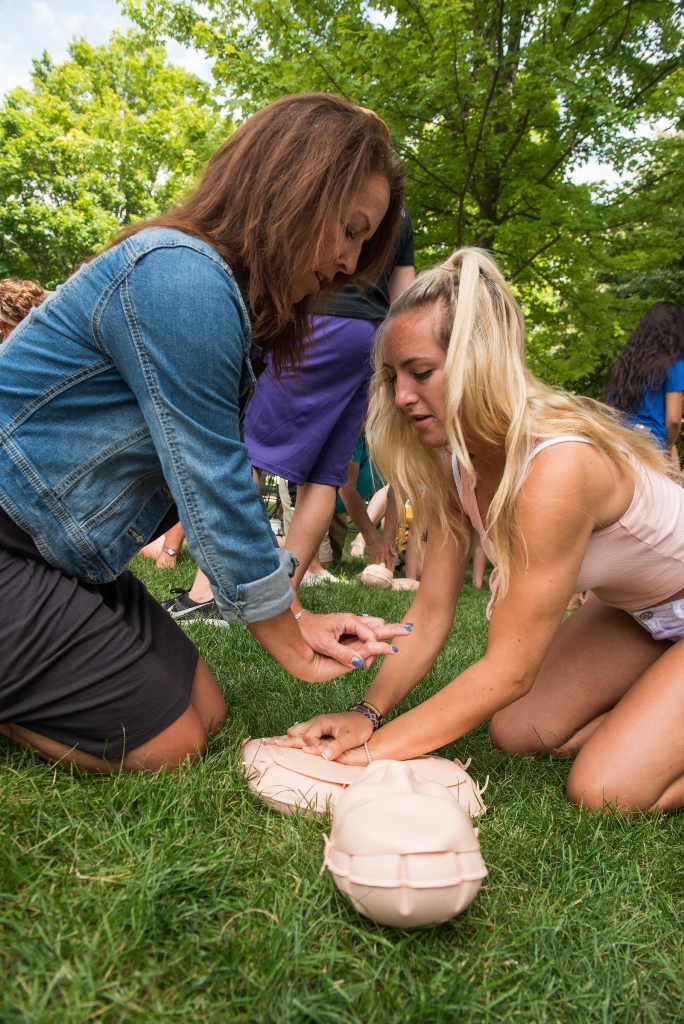

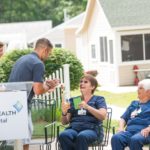
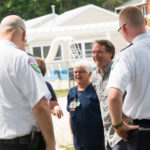
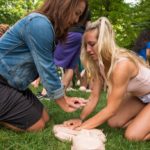
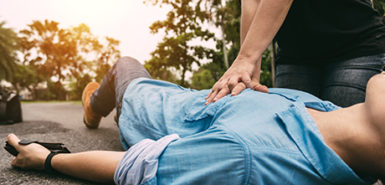 /a>
/a>
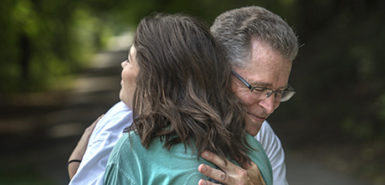 /a>
/a>
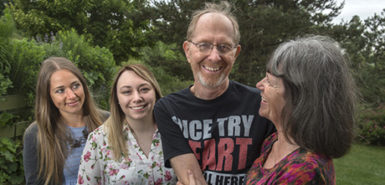 /a>
/a>
A touching story that brings tears to your eyes. The family photo shows a loving family who is grateful to have their dad and husband around to celebrate life. So happy to read of the positive outcome and hope Mark is around for many more decades to defend his cornhole crown!
What an amazing story with a great ending. Love to Connie and her continued effort to educate people on CPR. Mark, you make the world a better place for being in it. And it’s an honor to call you my friends.❤️
What an incredible story! Thank you so much for sharing. It gives me great pride to not only work at SHLH but also for being a life-long resident in Ludington. Sincerely, Pam